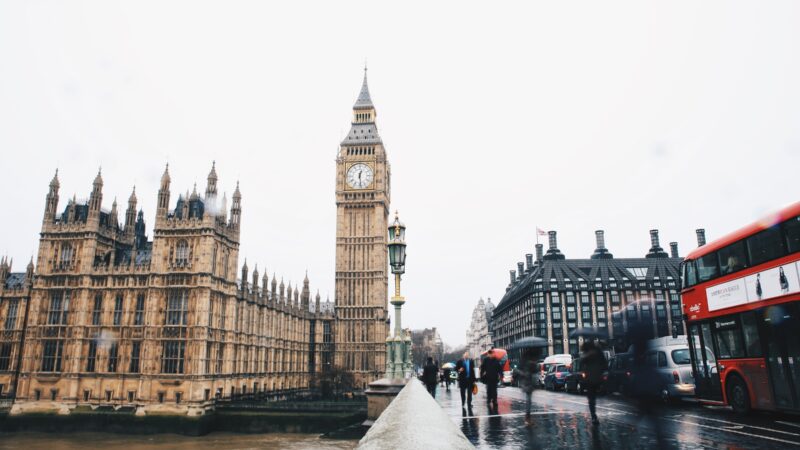Many British conservatives look at America’s Republican Party with envy. They have a slate of talented potential candidates for the 2024 US general election, and what with increasing numbers of Hispanics and black Americans voting for the GOP, they are likely to triumph in this year’s midterm elections in the face of a crumbling Biden administration that has pandered to the left over trans and cultural issues. They are also confronting many other problems that have started to destroy America’s self-confidence such as critical race theory and Black Lives Matter. It is a good time to be an American conservative right now.
Compared to the Republicans, the British Conservative Party is like the black sheep of the Western conservative family. Anyone who did their research on Boris Johnson before he gained the highest office in the land, such as me, knew his time as prime minister would be short and full of scandal. Those who knew this Conservative leadership race was inevitable suspected that the selection of candidates to replace Boris would be underwhelming. But there was one person who changed this year’s Tory leadership election: Kemi Badenoch.
It was always unlikely that she was going to win. Kemi was an equalities minister, an unknown government position. Her profile was quite low before she entered the race. I have no doubt that she wanted to win the Tory leadership contest and implement the changes she talked about. However, arrogant Tory MPs thought they knew best and eliminated her. The truth is that she was too radical for them. Regardless, she has transformed Conservative leadership races forever.
The reason why I made a reference to the culture wars the Republicans are fighting in the US above is because the UK is facing the same issue, and whilst Liz Truss and Rishi Sunak were clashing over the best way to generate growth, Kemi was the only candidate to discuss the impact of political correctness on Britain. As Louise Perry wrote for The New Statesman, she is a black woman from Nigeria who is resistant to groupthink.
Perry further explains that it wasn’t the fact that Badenoch is a black conservative that distinguished her from her talentless rivals; it was because she demonstrated how wrong her critics are about the assumptions often made about ethnic minority individuals in politics. She does not succumb to groupthink on Black Lives Matter in Britain, which would have made her the perfect person to take on that group’s victimhood mentality. They believe black people are victims of institutional racism. Their influence over British politics has increased since the death of George Floyd, and whilst the gutless Keir Starmer bent the knee for Black Lives Matter, Badenoch never did. If she became leader of the Conservative Party and prime minister, she would have proved the UK does not have a problem when it comes to institutional racism.
Furthermore, Badenoch had a plan to deal with political correctness. She is against gender-neutral toilets and she is opposed to throwing money at staff wellbeing coordinators (whatever they are). Despite being an immigrant herself, she also pledged to end the illegal Channel crossings that Boris has failed to deal with. Badenoch said she would do ‘whatever it takes’ to tackle illegal immigration, and in my opinion, that is a huge hint that she would have eventually pulled the UK out of the European Convention of Human Rights that thwarted the recent Rwanda flights. She stood out as a woman of principle, unlike Penny Mordaunt who proved to be nothing more than a fraud by reversing her previous pro-trans positions.
As a result of her anti-PC stance, Badenoch enthused the Tory membership base. There were numerous ‘Back Badenoch’ hashtags on Conservative Party members’ Twitter profiles, which further disproves Black Lives Matter’s theory on institutional racism because a mostly white, middle-aged party was so excited about the prospect of a Nigerian black lady becoming Tory leader. Her ideas were music to their ears.
And it is no wonder they were so enthused by Badenoch’s ideas. As Frank Feudi wrote for Sp!ked, Boris’s record on tackling political correctness is dreadful. Whilst he remained opposed to trans ideology in principle, last October him and his wife Carrie attended a Stonewall event at Conservative Party Conference, an organisation that has done more than any other to impose trans ideas upon society. Tucker Carlson also claimed Boris’s failure was that he did not govern like Trump, who took a tough stance towards the culture wars throughout his presidency. Boris even said himself he did not want to engage in a culture war. It is no wonder his cowardice paved the way for excitement about Badenoch amongst Conservative activists.
The Conservative Party is heading for defeat in 2024. Though Labour might not win a majority, I cannot see either Truss or Sunak being able to reverse the damage Boris has inflicted upon the political system and this country. They have been in power for too long and the lack of originality from the two remaining leadership candidates shows they are out of ideas. Their best outcome before 2024 would be to lose to a Labour-led government, retain a reasonable number of seats so that they can win again in 2028 or 2029, and elect Badenoch to provide the Tories with some fresh thinking and new policy positions.
It is a relief to say that the Conservatives have finally found a refreshing new candidate with bold ideas. Nonetheless, it is a pity that out-of-touch Tory MPs felt that she was not leadership material this year, and that they knew better than their members who help them get elected. The Conservatives would be wise to at least provide Badenoch with a cabinet position. But for now, they have made a dreadful mistake and they deserve to lose in 2024. The Tories can only redeem themselves by electing Badenoch as leader in the aftermath of an embarrassing electoral defeat.



